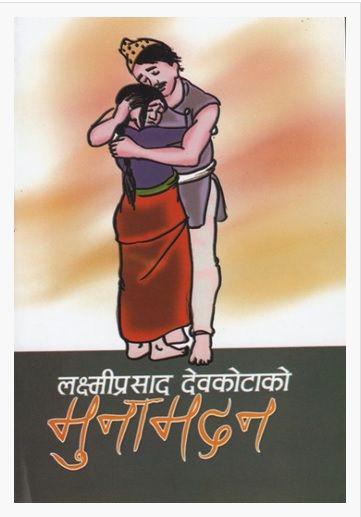MUNA
MADAN
Title : Muna Madan
Author: Laxmi Prasad Devkota
Publisher: Sajha Prakashan, Kathmandu, Nepal
Publish Year: 1936
Subject: Narrative Poetry
Genre: Romance
Pages: 41
Language: Nepali
Is it a darkly passionate tale of love? Or should we call it a
highly original gothic story? The classic narrative poetry Muna
Madan by Mahakabi Laxmi Prasad Devkota is, in my opinion, a unique and gripping blend
of these genres. Written in 1936, it is a folk epic novel full of desire, love, passion, humanity and regret, focusing on the main characters of Muna and Madan.
The book describes the life of a man (Madan) who leaves his wife
(Muna) and goes to Lhasa to make money. Madan represents all the youths of Nepal
who go abroad to earn money to earn their living.
The wife of Madan, Muna is the queen of love and sacrifice. She
loves her Madan a lot so she is upset as she has to send him to a place, Lahsa,
where there are lots of obstacles and risks. But finally, she accepts this
challenge and stays in the country with her mother-in-law who is old and weak.
While returning home, Madan becomes sick on the way. His friends
leave him on the road and come back home saying he has died. Finally, he is
rescued by a man who is considered to be of lower caste in Nepal. That is why
it is said that a man is said to be great not by caste or race but by a heart
full of love and humanity.
When Madan returns to Kathmandu after regaining his health, he
discovers that his mother and his beloved wife had already died. Madan comes to
realize that money is of no value at that point.
The story also shows the life of a poor woman who suffered much
without her husband and later dies because of grief. In this poem, Devkota has
written about the biggest problems of the then Nepalese society.
Through the story of Muna and Madan, Laxmi Prasad Devkota wants
to stabilize the facts of traditional societies, unscientific beliefs and the
negative impacts of unemployment and poverty in Nepalese society. The poet has
wonderfully defined love by writing about the relationship of Muna and
Madan.
Muna Madan is not what I would call an 'easy read'. There is dense
description and some of the dialogue is written in dialect,
which can be difficult to follow.
Nevertheless, I carried on and, all in all, I
can highly recommend Muna Madan. I challenge you to remain unmoved after reading this exceptional
book.





